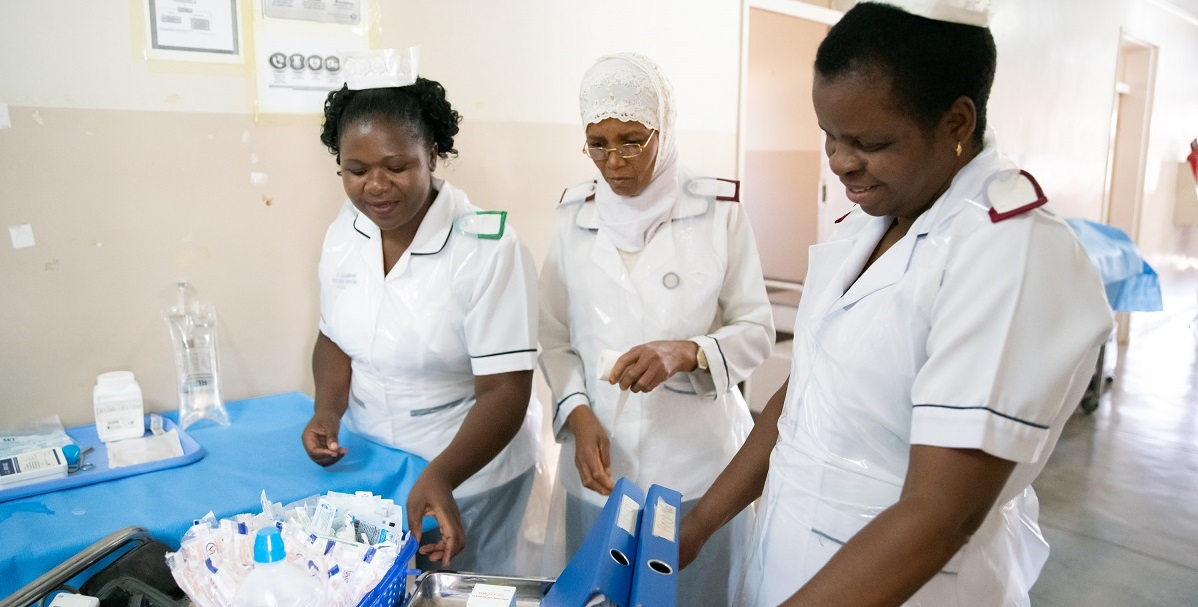
Closing gaps and restoring trust: Building on UNGA76 to strengthen global health systems

October 19, 2021
During the 76th United Nations (UN) General Assembly, Takeda’s Global CSR Program hosted a panel discussion to discuss why health systems strengthening (HSS) is more important than ever. Panelists dove into what HSS looks like in practice and why it’s so critical today.
Recently, Takeda, along with our Global CSR Program partners, DNDi, Access to Health Fund, UNOPS Myanmar and Plan International, hosted a webinar, “Where do we go from here? Securing the foundations of health systems,” alongside the 76th UN General Assembly (UNGA). Expanding upon last year’s event hosted by Takeda, Devex, and our Global CSR Program partners, this session focused on why strengthening health systems is uniquely important today.
Empowering vulnerable communities
Reflecting on the challenges impacting global public health—from COVID-19 and climate change to political unrest and rise in displaced populations—panelists emphasized that HSS has never been more important, especially for the marginalized communities that are typically most impacted by these events.
Dr. Kiyoko Ikegami, chair of the Board of Plan International Japan, believes that COVID-19 has highlighted the importance of prevention, especially for refugees and people in rural areas of developing countries where the vaccine will reach last. She emphasized that focusing on holistic health approaches, efficient systems of information sharing, and disease prevention through education would support these marginalized communities.
Speakers highlighted the many forgotten layers of community health systems, which include community-based distribution channels, community outreach and trust. Recalling the impact of COVID-19, Mr. Olawale Ajose, Neglected Tropical Disease Head of Access Advisor at DNDi, said, “We saw that governments had to rely more on community structures for getting services to patients at home. These are structures that they wouldn’t typically focus on.” He urged the global community and leaders gathered at UNGA that week to consider investments in non-traditional channels of distribution to help strengthen health systems.
Closing gaps for more equal health systems
Speakers agreed that addressing global inequity is key to establishing long-term, effective health systems around the world, and that today’s pandemic has shifted our understanding of inequalities. “We have all understood the interconnectedness of this world, how we’re all dependent on one another,” said Dr. Josephine Obel, deputy director at the Access to Health Fund, UNOPS Myanmar. “We have clearly seen that countries that have huge inequalities do less well during a global pandemic.” To address the needs of these communities, she emphasized the importance of ensuring global leaders and local governments prioritize investment in the most marginalized populations.
Similarly, Ms. Mia Malan, founding editor-in-chief of Bhekisisa Centre for Health Journalism noted that overall health systems go beyond that of just individual countries. She stated, “One can have a system in a country as effective as you want it to be, but if it operates within a larger system of inequity, it isn’t going to operate well.” She emphasized that without equity, we can’t be a healthier world.
Building trust with communities
Panelists reinforced the necessity of patient-centric approaches and community health systems as a means for restoring confidence within communities where trust remains fragile.
Dr. Si Thura, executive director at Community Partners International in Myanmar, and others spoke about the need for cultural awareness and education to develop effective campaigns and restore trust in these communities. To achieve these goals, Dr. Thura encouraged sustained investment in public and ethnic health systems, responsible, community-minded leadership and citizen engagement, and an emphasis on agility for health systems that must continuously adapt to new challenges.
Taking action
Takeda announced the addition of three new partners to our signature Global CSR Program. The 2021 awardees, IntraHealth International, Jhpiego and Pathfinder International, selected by a global employee vote, are all committed to strengthening health systems in marginalized communities in unique ways. The new and exciting partnerships will last four to five years, demonstrating Takeda’s ongoing commitments to strengthen health systems and improve access to health care in developing and emerging countries.
Learn more about Takeda’s Global CSR Program.